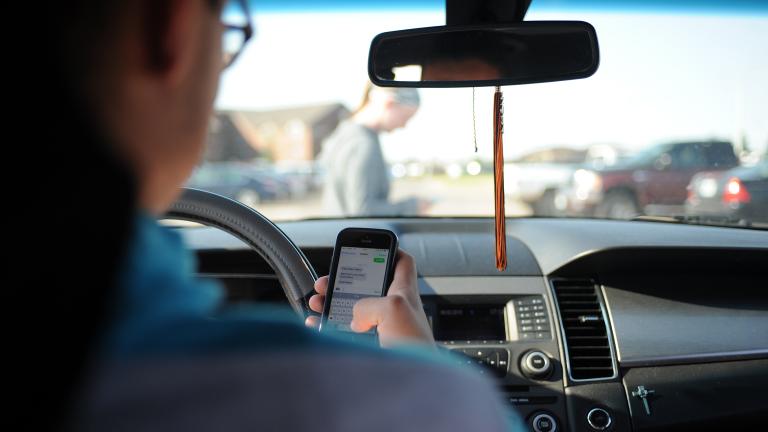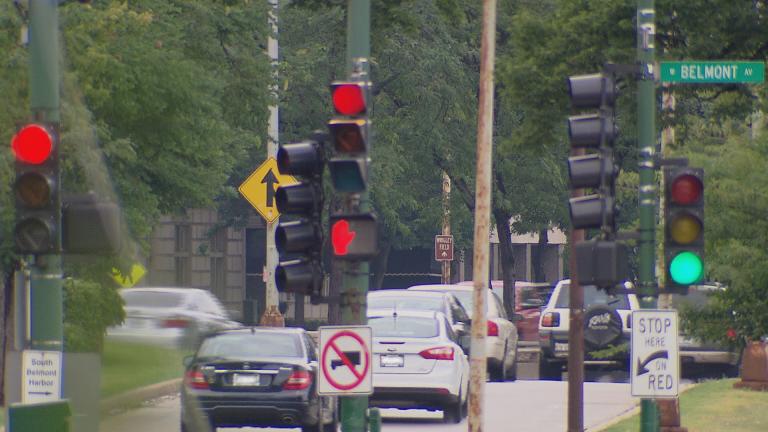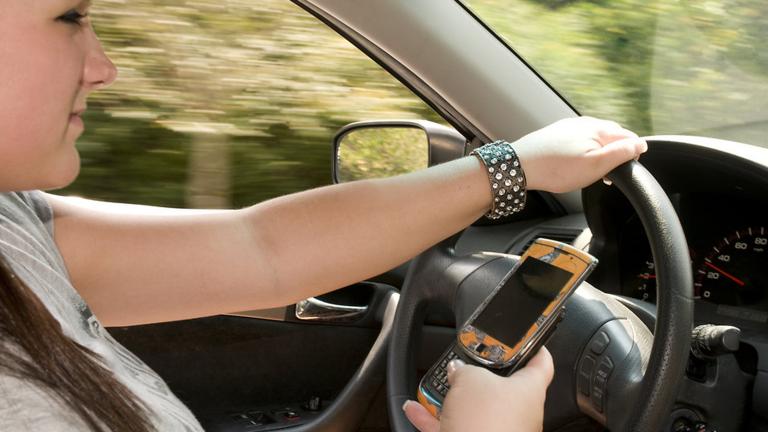For the last four years, Deborah Hersman has led the National Safety Council, a nonprofit with the mission to reduce preventable deaths. Before that, she served on the National Transportation Safety Board for 10 years -- including five years as its chair. Next month, she’ll move to California to join Google’s self-driving technology development company, Waymo.
Hersman joins us to talk about her career move and reflect on her experience at the National Safety Council.
Below, an edited Q&A with Hersman.
Looking back, are you surprised that vehicular deaths haven’t been reduced since your tenure, considering seatbelt laws have improved and safety technology like airbags, rearview cameras, driver-assisted braking and crash avoidance systems are in cars now?
I think it’s very disappointing that we haven’t seen fatalities go down on the roadways but I think all you have to do is look around and you can see how distracted people are. And so as our vehicles are becoming safer, we aren’t necessarily being safer drivers. So I’d say that there are many kind of different confounding things that go into place to kind of result in these numbers.
You wrote on your National Safety Council blog: “We must be willing to shift our approach in order to make the biggest difference.” What did you mean by that?
I think we have to think about new ways to do things and that means embracing technology. As an example, we killed 10,000 people every year in alcohol-impaired driving deaths and even though we’ve understood that this is a big issue and an area that we have to pay attention to, it’s been 30 percent of the highway fatalities since the 1990s. And so for 25 years, we haven’t really changed the discussion in this space. There’s technology that exists out there either through ambient breath or touch – like think about a push-button start for a car that can detect fairly quickly if people are impaired – but we don’t necessarily employ that in all vehicles.
Likewise, we know seatbelt use makes a difference, but 50 percent of our occupants’ fatalities in vehicles are unbelted. So when people get into a car -- particularly think about ride shares or taxis or limousines -- they often are unrestrained. NSC saw in a survey a 20-percent drop-off from people who always buckled up in the front seat versus people who always buckled up in the back seat. So those same individuals who are more likely to buckle up when they’re behind the wheel, will get in the car with a stranger who they don’t know their driving habits and they may not buckle up every time.
What’s your biggest accomplishment at the National Safety Council?
I would say in the last four and a half years, one of the things I’m really proud of is that we’ve elevated the national debate and discussion regarding solutions with respect to the opioid crisis. So, I’d say as a nation, we really elevated the conversation around opioids. Today, this is the number one cause of preventable death in the United States. And unfortunately what we’ve seen is the numbers with respect to fatalities have gone up but we have been successful in reducing the number of pills that are in circulation. And we’ve done this (through) good education, good laws and really bringing public attention to this.
And if there’s anything that individuals who are watching this can take away from this is that they have the ability to be their own best advocate in this space and they should absolutely talk to their health care provider when they’re being prescribed medication to make sure they understand what they’re taking, and understand if it’s safe and if there are better alternatives for them.
You’re moving to Google’s self-driving auto company, Waymo. Why?
I’m really proud of all of the work that’s been done with the National Safety Council and it’s been awesome to be part of this Chicago community. But I would say with respect to a life-saving opportunity to be in the first generation of a technology that I truly think is going to change the world and have the potential if we want to reduce fatalities and injuries on our roadway, it does mean doing things differently and expecting human beings to not make mistakes. We lose 100 people every day in the United States to motor vehicle crashes. And if we keep doing what we’ve done, we’re going to get the same results that we’ve always gotten. And I feel like this is a game changer. This technology can really help all of us.
Related stories:
Motor Vehicle Deaths Claim 40,000 Americans in 2016
Study: Drivers Traveled 1.9M Extra Miles Due to Closed City Emission Test Sites
Illinois Begins to Pave the Way for Self-Driving Cars







